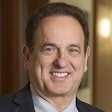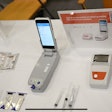
Most academic radiologists report working extra hours, with clinical work making up a significant amount of the additional time, according to survey results published February 11 in Academic Radiology.
But a team led by Dr. Ceylan Cankurtaran from the University of Southern California (USC) in Los Angeles also discovered that the majority of survey participants found their work to be meaningful and considered protected time off work and remote work as effective ways to balance work and life responsibilities -- a finding that could help ease burnout's effects.
"Institutions should invest in providing the infrastructure for physician work-life balance and in facilitating healthy lifestyle choices for physicians," Cankurtaran and co-authors noted.
Burnout persists in radiology, and radiologists appear to have an above-average risk of the condition among other medical specialties. A recent national survey suggested that 79% of academic radiologists reported at least one burnout symptom, such as emotional exhaustion, cynicism, or the feeling of having diminished personal efficacy; work overload and work-life imbalances are considered top contributors to radiologist stress and burnout.
Cankurtaran and colleagues sought to explore connections between individual and institutional factors that could affect work-life balance via a survey that included 28 USC radiologists.
Of survey participants, 89.3% reported working extra hours. Of these, 80% reported having worked more than five extra hours on average per week and 40% reported working more than 10 extra hours on average per week.
While administrative tasks and those related to education and research made up the most common types of extra work, 42.9% of the radiologists putting in extra time reported engaging in clinical work. And while all faculty reported using at least some vacation days during the previous 12 months, 35.7% reported using vacation buyback.
The group also found the following:
- 70.4% of survey participants had caregiver responsibilities.
- 64.3% reported other individual stresses such as financial or family needs, or health-related issues that required "consistent" demand of time and effort.
- 35.7% reported not being able to balance competing life and work demands.
- 21.4% of respondents stated they did not use any individual healthy lifestyle solutions on a consistent basis over the past 12 months.
- 43.4% of faculty stated that they perceived protected time off and remote work to be effective strategies to help with work-life balance.
But along with these findings, the team also discovered that more than half of survey respondents (53.6%) reported a level 4 (out of 5) rating for work being meaningful and being positively engaged in their work.
While the researchers suggested that institutions should support physicians with work-life balance tools and healthy lifestyles, they also called for future multicenter studies with larger cohorts, emphasizing that this could help with development of targeted personal interventions.




















